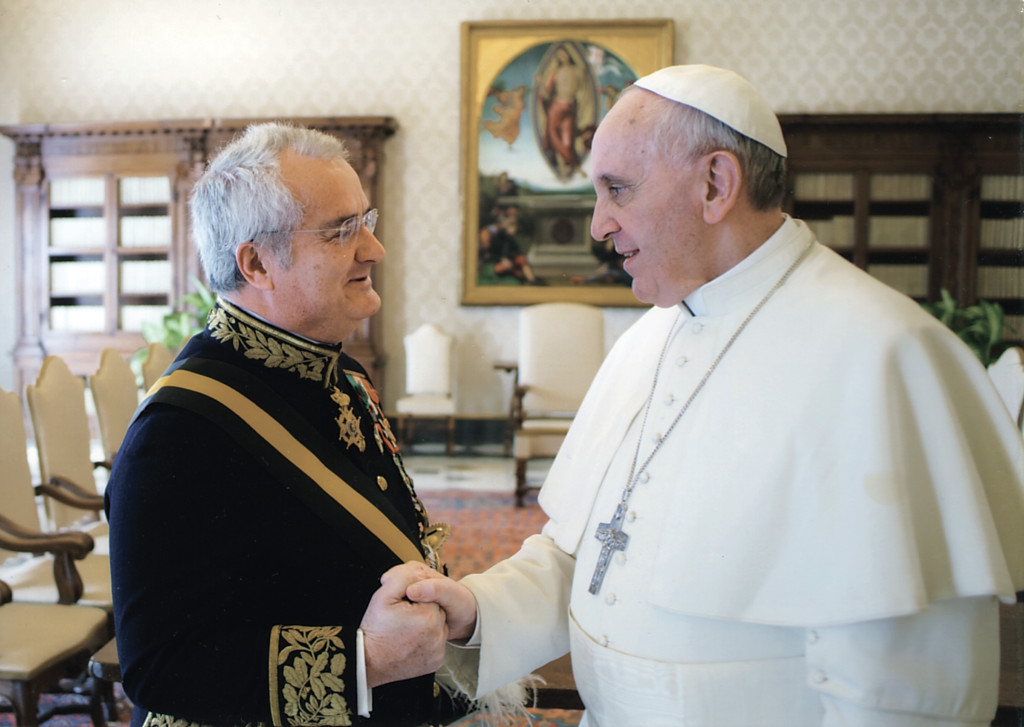
Pope Francis received Portugal’s ambassador to the Holy See, António Carlos Carvalho de Almeida Ribeiro, on April 18, 2013, just a month after his election as Pope. The ambassador was presenting his letters of credence to take up his post.
The centenary of the apparitions of Our Lady at Fatima falls in 2017. Reports of plans for a papal visit to Portugal that year have recently made the rounds… Pope Francis has dedicated his pontificate to Our Lady of Fatima, and some of his homilies show that Our Lady’s messages at Fatima are inspiring and guiding the Holy Father in his shepherding of the Church at this time.
The ambassador of the Republic of Portugal has been a career diplomat all his professional life. He has received several decorations from various Orders, the latest in December 2013, when he was awarded the Grã-Cruz da Ordem Militar de Cristo (Grand Cross of the Military Order of Christ) by the president of Portugal.
What was the motivation of the award?
Ambassador Antonio Carlos Carvalho: This decoration was given to me by the president because before I came to the Vatican I was working in the foreign ministry in Lisbon as secretary general, which in our system means the top diplomat. There is a tradition that this top diplomat, after finishing his duty, is awarded with this decoration by the government, by the president. This decoration is the Christ Order, which is a very old one, and in the past, as part of the regulations, it could be awarded by the Pope, apart from the King of Portugal. Not any more. Being appointed ambassador to the Vatican, it has a very special meaning. So these are perhaps the two main reasons why I am so happy to have received this decoration.
Earlier in your career you had already lived in Rome working at Portugal’s embassy to Italy. In what ways is it different to represent your country at the Holy See?
Carlos Carvalho: It is completely different. When I was here 30 years ago, I was a young junior diplomat at the embassy to Italy. I had very specific tasks. Now it is a completely different assignment. I am representing my country to the Holy See, which is a unique experience at a unique State in the world, so I think there is no possible comparison between the two tasks.
The only common thing is that I am living in Rome again, in Italy, which is a country I love.
To represent my country at the Holy See is so specific because the Vatican on one side is the center of the Catholic Church, so there is a religious aspect of this assignment, but apart from that it is also a State like any other State with its own rules, internal and foreign policies. For a diplomat, it is a unique assignment, where you are accredited to a country and to an institution with these two aspects: religious to the head of the Catholic Church and to a State with its government, foreign policy and embassies abroad.
So it is a special challenge, it is a different world. The Vatican has specifics, like its religious aspect, that make it different from other states. This is something that changes our work because we are dealing with a State, represented worldwide, with an influence over the whole world not only in terms of religion but also in terms of a moral reference. So it combines these various aspects, which make this assignment very unique.
The challenge is that the Vatican and especially this Pope have a huge influence. What the Pope says is listened to all over the world, so I think this is very particular and I would say there is no other case in which the influence can be so strong in the whole world. So we are dealing with an institution that has this possibility of influencing the whole system globally.
What are your goals as ambassador?
Carlos Carvalho: To represent my country, of course, and to keep the best possible level of relations between Portugal and the Holy See. We have had relations since the foundation of my nation in the 12th century, since 1143. This embassy of Portugal is the oldest one in the world for us because at that time the independence of Portugal had to be recognized by the Pope and the Holy See. So that is why it was so important for Portugal since the very beginning to have relations with the Holy See.
What are the most important current issues in the relations between the Holy See and Portugal?
Carlos Carvalho: There is a Concordat, an agreement with the Holy See, whose rules both parties have to respect and be bound by. Portugal is a secular state. The Concordat regulates several concrete aspects of the relations between the Catholic Church and Portugal, and the State. We had one before, and the last one was completed 10 years ago this year. It was reviewed after the revolution in 1974 because there were changes in our Constitution and in our system. There was a proposition to have this new Concordat that updates the old texts. I would say it is a normal instrument between the Holy See and, in this case, Portugal.
It is important for both sides, especially for Portugal, to keep applicable and respected what is foreseen in the Concordat by the government. The main challenge for me is to keep this agreement a respected document, which gives a frame to our bilateral relations.
Apart from that, I would mention Fatima, which is a very important factor that strongly links us to the Holy See. For me it is one of the subjects which is very much present in my agenda. In 2017 we are going to celebrate the 100th anniversary of the Apparitions, which is a very significant moment of commemoration. We are looking forward to organizing it properly, since Fatima is respected not only in Portugal but all over the world. Everybody has heard about Fatima, and pilgrims come from every continent.
Are there any questions raised in the Church and State relations in your country regarding pro-life questions, expression of religious freedom, the participation of the Church in the public debate?
Carlos Carvalho: There are no current issues of such kind. Sometimes the government may not completely follow what would be expected by the Catholic rules in several aspects, but this has to do with the fact that we have a secular state. Political parties are not necessarily bound to the rules of religion so it depends more on the electors than other things. Still, we cannot complain in general. Portugal is mainly a Catholic country; more than 80% of the population is Catholic. There is no problem of freedom of religion. There are other religions in minority, which can freely express their faith. Despite the fact that some laws may not correspond to what the Church expects, the majority of the population keeps its faith and follows the rules of it.
Pope Francis has been invited to Portugal. What are your hopes regarding this possible visit?
Carlos Carvalho: There is great expectation for this event. We very much hope that His Holiness will visit Portugal in May 2017. We have time to prepare for the anniversary, but I know the Holy Father is very much aware of this invitation and of the enormous expectation of the Portuguese people for this visit. We hope this papal trip would allow contacts with the Portugese authorities as well.
Pope Francis formally entrusted the world to Mary in the presence of the statue of Our Lady of Fatima in October at one of the closing events of the Year of Faith. How was this papal gesture perceived in Portugal?
Carlos Carvalho: There was a wonderful reaction on the faithful’s part. We know how much Pope Francis is devoted to the Madonna of Fatima. From the beginning, in one of his first speeches, he mentioned Our Lady of Fatima, so from the first days of his pontificate he showed his devotion to her. For Portugal it is a matter of great honor and we have great recognition to the Pope for this.
Has the Church experienced the so called “Francis effect” in Portugal? What are the reactions to the new style of the pontificate?
Carlos Carvalho: Not only in Portugal but in the whole world there is a great reaction of happiness and surprise sometimes. I know so many people, who are not particularly religious, not even Catholics, who feel such a strong emotion when they hear Pope Francis speak or when they see him act at his public appearances. Suddenly they have become so interested in what the Pope says, in his message, in the way he conducts his relations with common people. I really think this is the Pope the Church needed for this time. He is creating such a huge enthusiasm in the world, including Portugal as well, which leaves no doubt his pontificate is a very special one in this difficult moment of the world.
You arrived in Rome just before the election of Pope Francis. What did it mean to you to live through that very particular moment of the Catholic Church?
Carlos Carvalho: I arrived in Rome on March 10, 2013, one day before the conclave started. I was very happy when two days afterward there was white smoke coming out of the chimney of the Sistine Chapel. There was great anxiety before the conclave. Nobody knew what would happen. There was a lot of speculation from journalists coming up with names of possible papabili, but as in the past, all these predictions failed, almost completely… So the first reaction was surprise, but immediately after that when the puzzle pieces were put together, people started to realize that the election of Pope Bergoglio was something that could not be completely unexpected. So first surprise, then recognition that it was a natural choice by the cardinals in the conclave.
From 2002 to 2007, you served as ambassador to Argentina, Paraguay and Bolivia, with residence in Buenos Aires. Did you meet Cardinal Bergoglio in that period? Do you have memories of him?
Carlos Carvalho: The members of the diplomatic corps were invited to a ceremony in the cathedral every year. It was a Te Deum on the national day of Argentina. It was celebrated by Cardinal Bergoglio, so we all knew him at least from this occasion. I attended this ceremony two or three times. Cardinal Bergoglio was a pastoral figure. He was doing his pastoral work as archbishop of Buenos Aires in a very consistent way. Sometimes in his homilies his interventions were very strong, in the sense that he was transmitting strong messages about the country and the situation of so many poor people in Argentina. He was a very respected figure and well-known by everybody. He was in contact especially with the poorest from the slums around the capital. I would say he was a national figure, a moral reference. His opinion was important for everyone in the country because they listened to someone whom they respected.
As a diplomat, did you take his words into consideration back then?
Carlos Carvalho: Absolutely, no doubt because he was pointing out some difficulties that the country was facing and calling the attention of people to problems that were affecting them. So what he was saying was important for Argentina but also for us diplomats because he was highlighting specific questions which were important to follow. He was a very charismatic figure for everyone.
What is your opinion about Pope Francis?
Carlos Carvalho: He is the right person in the right job, if I can say that. He is the Pope the Church needed at present. His immense popularity and charisma, the way he speaks to the people, makes him really someone that is very special for everyone, for Catholics and non-Catholics as well. That is why I say he will have a very strong pontificate, because he will change things. He will give a different kind of impression that was needed to the whole world.
When you met him personally, was there any particular moment that caught your attention, your heart?
Carlos Carvalho: The most important moment was when I presented my credentials to His Holiness. As any other ambassador, I had an opportunity to have a private conversation with the Pope, just the two of us in the room. I had the privilege to be the first ambassador to present my credentials to this Pope. I started the conversation by saying I had lived in his city, in Buenos Aires, and I had very good memories of the people, Argentina, and of him. It was the beginning of a very friendly and open conversation. After that, I presented my family, who came to Rome for this very special occasion. There were very strong moments in terms of emotion because the Pope was extremely kind to each one of us.
You are a Catholic. What does it mean to be a believer in the diplomatic world? Does it change anything?
Carlos Carvalho: I think so. You believe in justice, in dialogue, and you don’t believe in conflicts and in resolving problems by force. These principles are important for someone who is a Catholic. Pope Francis has repeated time and again that dialogue is the only way to solve conflicts, not war or aggression, not lack of respect for the human rights of the person. These are basic principles: respect for freedom, etc. These are ideas that guide my daily life and profession.
One of your sons leads a youth movement in Portugal…
Carlos Carvalho: The movement is called “Equipas de Nossa Senhora” (“Teams of Our Lady”). Their groups exist all over Portugal. My son is responsible for the Lisbon area. They meet every week, they have activities, they discuss issues related to religion and morals.
In the European pro-life campaign “One of Us,” Portugal participated successfully by collecting 73,661 signatures (the minimum country quota was 16,500). To what extent are members of the Catholic Church active in promoting Christian values in the society of Portugal?
Carlos Carvalho: They are very active in my country. Portugal is a mainly Catholic country, so the Church has a strong influence, not only in the big cities but also or mainly in the rural areas. In fact, the Catholic Church helped a lot to collect signatures. It was amazing how large a number of people signed the petition. Also people from the civil society were very much engaged in getting the minimum of signatures, which, in the end, they greatly exceeded.

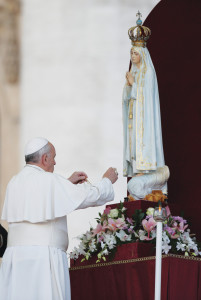

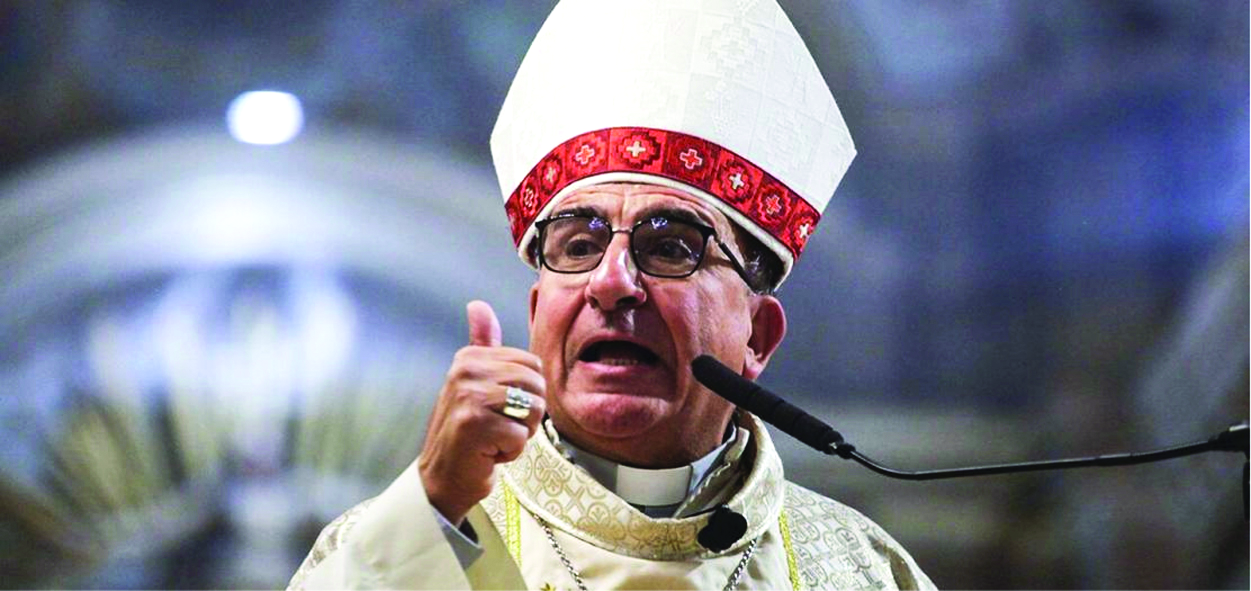
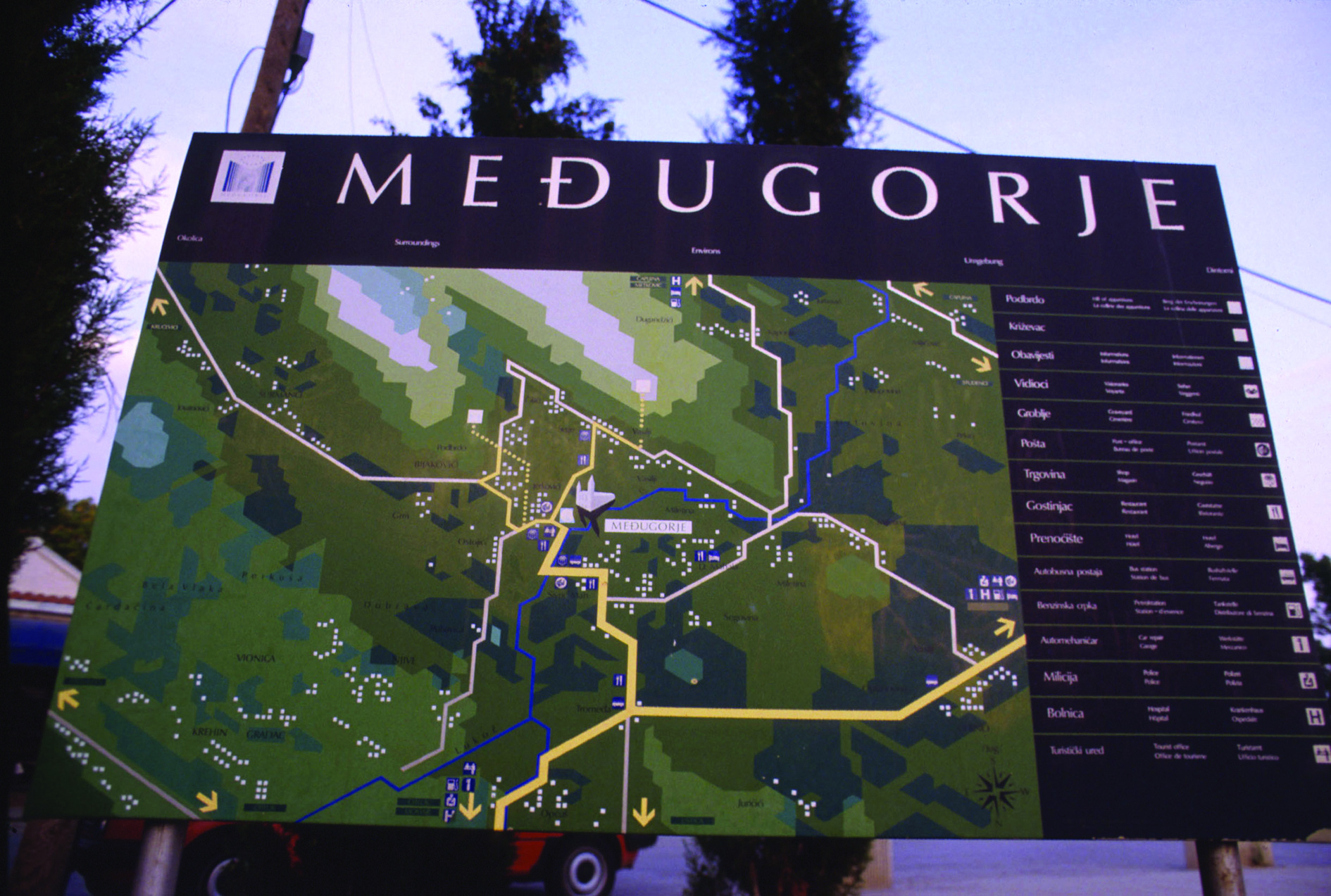
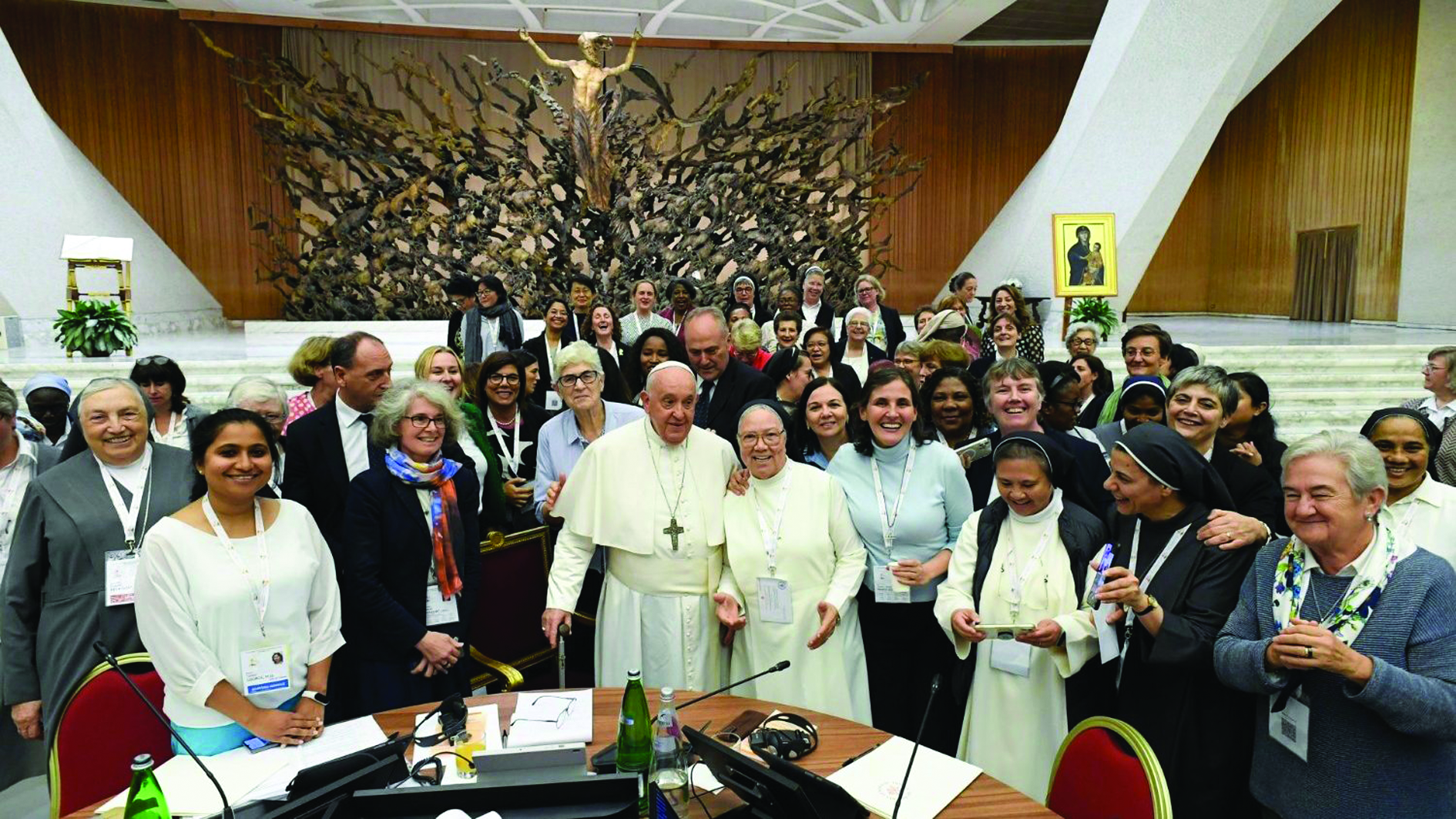

Facebook Comments